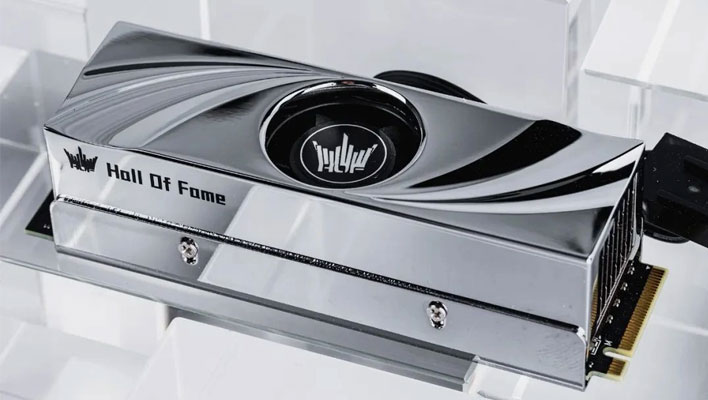Galax Unveils HOF Extreme 50S PCIe 5.0 SSD With Lightning-Fast 12.4GB/s Reads

Galax has retooled its Hall of Fame (HOF) Extreme 50 solid state drive (SSD) that it showed off earlier this year, with the latest iteration offering even faster speeds. Like the original model, Galax's new HOF Extreme 50S variant hitches its storage wagon to the PCI Express 5.0 bus but kicks things up a notch with improvements to both its sequential read and write capabilities.
The original model burst onto the scene with sequential reads and writes rated at 10GB/s and 9.5GB/s, respectively. Galax's HOF Extreme 50S, meanwhile, pushes sequential reads to a blistering 12.4GB/s, which amounts to a 24 percent performance uplift, while sequential writes see a slighter higher gain with a 24.2 percent increase to 11.8GB/s.
it appears the gains are entirely based on massaging the firmware. According to ITHome, the HOF Extreme 50S employs the same 232-layer triple-layer cell (TLC) NAND flash memory as the non-S variant, as well as the same Phison PS5026-E26 controller hardware. Both drives also feature LPPDR4 cache, though it's not stated exactly how much.
One key difference is that Galax bumped up the capacity options. Whereas the previous version launched in 1TB and 2TB capacities, the Galax HOF Extreme 50S model will be offered in 2TB and 4TB flavors.
Other than the raw speed of these SSDs, they stand out for having thick, active cooling solutions. Both drives come encased in a chunky aluminum cooler-slash-heatsink with a fan attached. Keeping SSDs cool—and in particular, the controller chip—is key to maintaining increasingly faster speeds while staving off premature throttling.
That said, Galax is still leaving some headroom untapped with its speed-boosted HOF Extreme 50S. The PCIe 5.0 bus provides 3.94GB/s per lane, for an NVMe drive that uses four lanes of traffic, the theoretical maximum throughput is 15.76GB/s. That's before accounting for overheat, but even so, we expect SSDs will eventually nudge up to the 15GB/s mark.


